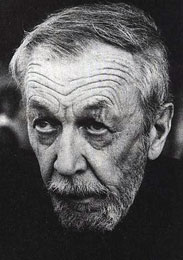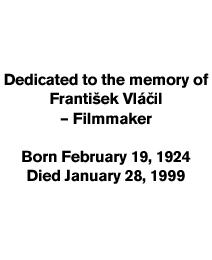
A brief excerpt from the booklet essay by Peter Hames..
With Adelheid, Vláčil worked again with Körner, adapting his novel which had been originally published in 1967. Again it courted controversy. Set in the aftermath of the Second World War in the Sudetenland in Northern Moravia, it tells the story of Viktor Chotovický (Petr Čepek), a Czech airman returned from service in the Royal Air Force, who is given the management of a former German estate. Adelheid (Emma Černá), daughter of the former owner, is assigned to him as a servant while German women work in the fields, wearing white armbands. In dealing with the Czech mistreatment and expulsion of the German community and the appropriation of property, Vláčil touched on a previously taboo subject that has only come to the fore again in recent years.
The film was unusual and controversial for its time in portraying the Czech mistreatment of Germans after the ending of the war. It was agreed by the Allies at their meeting in Potsdam in the summer of 1945 that the Sudeten German population be expelled from Czechoslovakia in an attempt to strengthen European security - an act that would now be described as "ethnic cleansing". But it is well to remember that this also took place within the context of changing borders, which also resulted in the transfer of populations. Most obviously, both the western and eastern borders of Poland were moved to the west, the Baltic countries became part of the USSR, as did Ruthenia, which was transferred from Czechoslovakia to Ukraine.
However, the Germans of the Sudetenland were not colonisers but natives of Bohemia and Moravia who had lived for centuries – as had the Czechs and Slovaks - under the rule of the Habsburg Empire. The tragedy of Czechoslovakia began with the demands of the Sudeten German Party for union with Hitler's Reich, and Hitler's subsequent exploitation of that led directly to the cession of the Sudetenland in 1938 and the invasion of Czechoslovakia in 1939. Nonetheless, many Germans had supported the state of Czechoslovakia and many more were opposed to the politics of Hitler. But this was not a time of forgiveness and K.H. Frank, one of the most hated governors of the Protectorate of Bohemia and Moravia under the Nazis, was a member of the Sudeten German Party. Furthermore, it has been estimated that 360,000 Czech nationals lost their lives as a result of the occupation.
Over 12 million ethnic Germans were expelled from Central Europe, nearly 3 million of them from the Sudetenland. It has been estimated that 20,000 died during the expulsions and thousands went missing. The allied decision had been preceded by forced expulsions accompanied by violence and massacres. When Evgen Loebl visited the border areas after the war, he found German women working with their white armbands in labour camps, living on starvation rations, and girls "from good families" serving at the tables of "the new supermen". His friends commented that, since he had spent the war in England, he had not suffered the humiliation and persecution of the occupation and the treatment of the Germans was less than they deserved. "I gradually realised that Hitler had not really lost the war. The power he had exploited was still there. His ruthlessness, his profound contempt for human beings and their rights, had taken root." (Conversations with the Bewildered).
Peter Hames’s complete Essay, from which this short excerpt is taken, appears in the booklet of the DVD release.


Czechoslovakia, 1969
Length: 98 minutes
Sound: Original mono (restored)
Colour
Original aspect ratio: 1.33:1 Full Frame
Language: Czech and German
Subtitles: English On/Off
PAL
DVD9
Region 0
RRP: £12.99
Release Date:
23rd Aug 2010
Second Run DVD 041


